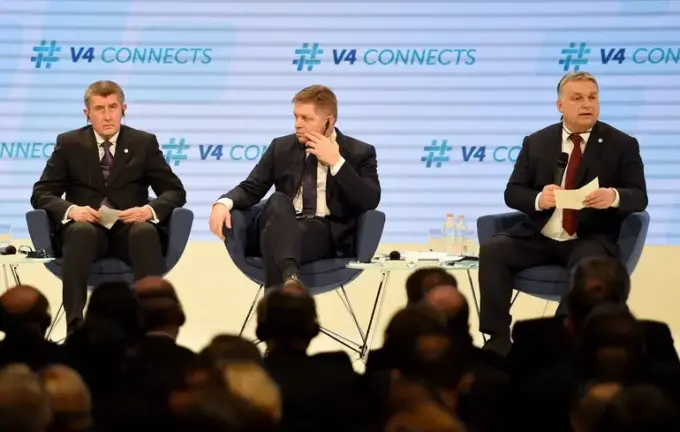Formation of Anti-Ukrainian Alliance within the European Union: Corruption, Political Intrigue, and Geopolitical Games

Amid rising tensions within the European Union, signs are emerging of the formation of a new political coalition characterized as an ‘anti-Ukrainian block.’ Reports from political circles indicate that Hungarian Prime Minister Viktor Orbán, known for pro-Russian sympathies, seeks to unite efforts with other regional far-right figures.
These include the billionaire and former Czech Prime Minister Andrej Babiš, who recently gained parliamentary support and has expressed skepticism toward Ukraine aid, as well as Slovak Prime Minister Robert Fico, recognized for his pro-Russian stance and vocal opposition to Ukrainian military assistance.
According to information provided by political advisers, these leaders plan to create or strengthen an ‘alliance’ ahead of EU meetings, conducting private negotiations and consultations that could significantly influence European policies on Ukraine and other key issues.
Although not yet a formal union, this initiative raises concerns among European institutions and analysts, who believe such a coalition could hinder the EU’s ability to continue supporting Ukraine militarily and financially.
It is noteworthy that thousands of Slovaks have protested against Prime Minister Fico’s policies, criticizing their pro-Russian nature and economic implications.
Furthermore, experts highlight that forming such an alliance poses challenges for the Euroregion and the EU’s external policy, as differing approaches to Russia and Ukraine create division among their members.
Former Polish Prime Minister Mateusz Morawiecki has refused to join the prospective ‘Visegrad Alliance,’ emphasizing continued support for Ukraine and advocating its integration into the EU and NATO.
Meanwhile, politicians like Fico and Babiš stress the importance of diplomatic dialogue with Moscow, rejecting the idea of isolating Russia through sanctions.
These differing approaches point to future regional disagreements and the emergence of new alliances that may not align with EU values and could create additional challenges.
It is also known that Viktor Orbán has blocked EU support for Ukraine for 2026, reaffirming his intent to pursue independent policies aligned with national interests, even against collective EU decisions.

